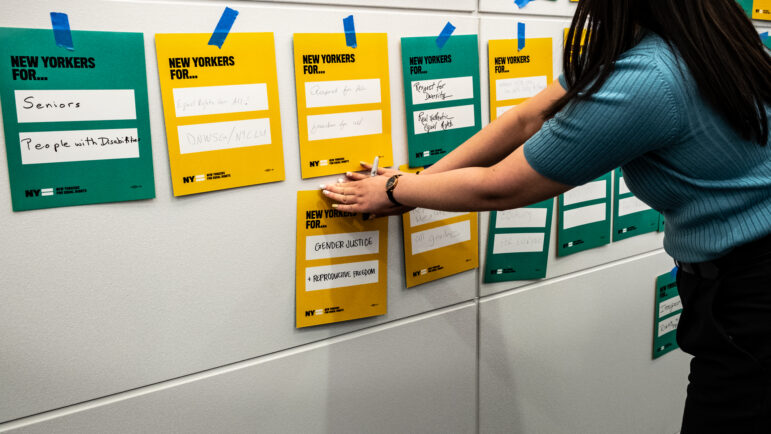Last Monday, the Campaign Finance Board held its post-election hearing for politicians and policy wonks to air grievances over the city’s matching fund program–but they certainly didn’t expect to hear any insider confessions of political strong-arming in Harlem.
Failed City Council candidate Felix Rosado testified that before this year’s primary election an unnamed public official had “twisted” his arm over lunch, demanding that Rosado switch consultancy firms in order to gain the needed political support to win District 8. Rosado lost there to incumbent Phil Reed by nearly 3,000 votes.
The charge is eerily similar to those made in Brooklyn last month, where District Attorney Charles Hynes indicted Democratic party leaders Clarence Norman Jr. and Jeffrey Feldman for allegedly pressuring judicial candidates to use consultants and campaign printing shops. Hynes has called the alleged felonies “definitional extortion,” while attorneys for Norman and Feldman have argued the behavior was, in essence, politics as usual.
Rosado testified that he was charged $27,000 by the consultancy firm, nearly double other consultants’ estimates—and for what he describes as shoddy service. Rosado said he did not even receive a leaflet in his own mailbox.
The Campaign Finance Board seemed startled. “Oh, no,” said board member Alfred C. Cerullo, while chairman Frederick A.O. Schwarz Jr. worried aloud that the matching fund system could have unintentionally created an industry of reckless entrepreneurs.
After the session, Rosado, who was endorsed by the New York Times in his 2000 bid for State Senate, told City Limits he thought the hearing was private. “Now I’m really in a pinch,” he said, and declined to disclose the names of the city official who allegedly pressured him into using the consultants, or the consultancy shop he hired.
On Rosado’s campaign disclosure forms, however, records show Rosado paid $27,000 to Sheinkopf Communications.
“We certainly didn’t twist [Rosado’s] arm to hire us,” said president Hank Sheinkopf, adding that he didn’t know who referred Rosado to his firm. Sheinkopf also says he charged Rosado discount rates because the candidate didn’t have the funds to pay for the services up front, and Sheinkopf offered him wiggle room so the mailings could be sent out on time. “I can certainly understand if [Rosado] is frustrated,” Sheinkopf said. “But we need to get paid, too. We put out top product for him. He just didn’t raise enough money to compete.”








